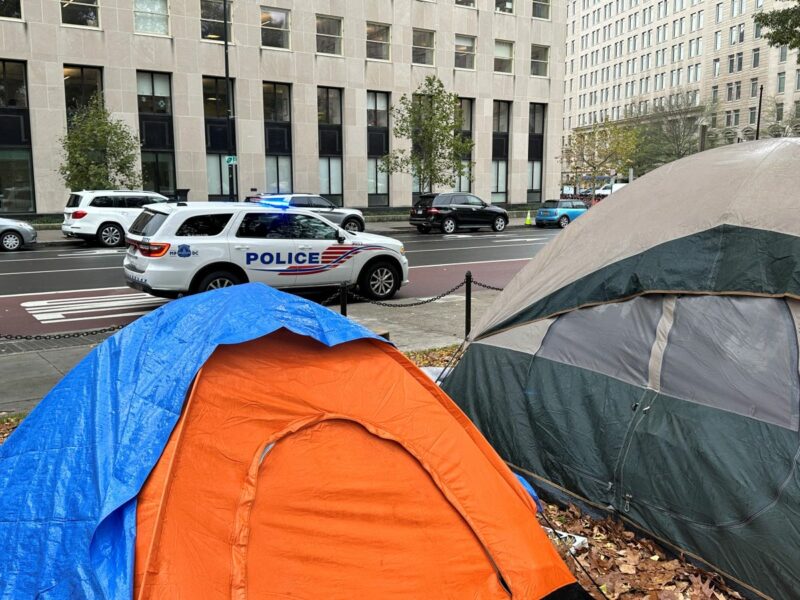Landlords’ Lucrative Game: How Apartment Application Fees Add Insult to Injury in the Rental Market
Getting into housing is an expensive, time-consuming, and frustrating process that costs much more time and money than it may initially seem.
We know about the hours spent combing listings for something that’s actually affordable and reasonably nearby work. We know about the struggle to scrape together enough savings to cover the first month’s rent, last month’s rent, and a security or pet deposit. We even know about the no longer connected-to-reality income requirements that demand applicants’ monthly income be at least three times as much as the rental price or force them to find a co-signer.
But on top of that, some landlords add an income stream for themselves—the application fee. These fees are supposed to cover the cost of processing an application, including pulling a credit report and performing a background check to ensure a potential tenant is qualified. But the costs are adding up for renters desperate to secure housing in a fast-paced market.
How Much Could Application Fees Cost?
Most rental application fees cost somewhere in the neighborhood of 30 to 50 dollars per person. That seems reasonable enough at first glance but given the competitive nature of our current housing market, the average person has to apply to multiple different apartments before they get lucky enough to secure one.
The process can be even more drawn out for people with an eviction on record, a less-than-stellar credit history, or employment a potential landlord deems insufficient. After the fifth, 10th, or 20th application, you may have spent hundreds of dollars and still have nowhere to live.
Of course, some landlords and brokers are simply charging people astronomical fees right off the bat.
In places like New York City, rental application fees are capped at $20, but that doesn’t stop some people from asking for more. They’re banking on potential tenants either not knowing their rights or being desperate enough to secure an apartment that they pay up without making a fuss. Too often, it works.
Processing rental applications is an essential function of landlords. It’s the cost of doing business, and with good business practices, landlords should be able to cover that cost with their business’s income.
What Do Application Fees Pay For?
The landlord’s party line is that application fees pay for credit reports, background checks, and possibly time spent verifying the information listed on the application. That may be true for the first few applicants who submit applications. Still, once a qualified tenant is found, subsequent applications do not receive the same careful consideration if they’re even looked at.
The only way to avoid this is to accept only one application for each vacant apartment at a time and thoroughly vet that application, only accepting another if the first one is denied. Not many landlords operate that way, particularly in locations where affordable housing is extremely scarce.
Of course, apartment application fees are non-refundable. It’s difficult to prove that your application was not processed properly and that you did not receive the service you paid for with that fee. Most of the time, once you pay that fee, it’s gone for good.
Let’s Not Incentivize Landlord’s Bad Behavior
There are few locations across the US with a limit to how much a landlord can charge in rental application fees and even fewer locations where such limits are actively enforced. We’ve had decades of experience teaching us that many landlords will only do the right thing if it’s a) profitable or b) legally required at the risk of being unprofitable.
Conditions being as they are, landlords are currently incentivized to charge high application fees, collect as many applications as they can, and take their time deciding which applicant will win their twisted little housing lottery. This system is bleeding renters dry.
Other systems exist. For example, the real estate search site Zillow offers a service where people can pay a one-time $35 fee to cover their credit report and background check. This fee applies to unlimited rentals through the website without further application fees.
It doesn’t make sense to pay multiple times for the same information to be submitted to the same portal or sometimes even to the same company! This model offers a compromise between prospective renters being milked for all they’re worth and landlords not competent enough at their line of work to cover their business’s basic costs.
Hope on the Horizon
Out-of-control rental fees have caught the attention of even the highest levels of government. The Biden administration is taking steps to combat these fees, including asking popular rental housing platforms for increased cost transparency. The administration points to new research conducted by HUD as a roadmap for lowering excessive fees and supports states’ legislative efforts to cap application fees.
For now, applying to rentals through Zillow or a similar service may be the best way to avoid spending your life savings trying to be approved for an apartment.
Suppose you live in an area where most of the apartments aren’t listed on Zillow, or you get your heart set on an apartment that does not participate in the program. In that case, ask how many other applications are in the queue before submitting yours. The more applicants ahead of you, the less likely your application fee will be put to good use, although you may not get a straight answer.
Familiarize yourself with local laws to know your rights as a tenant. You may be living in a location with protections against excessive apartment application fees and not even know it. If you’re having trouble finding that information, your local tenants union may be able to help you out and explain the rights you have as a renter in your specific area.













